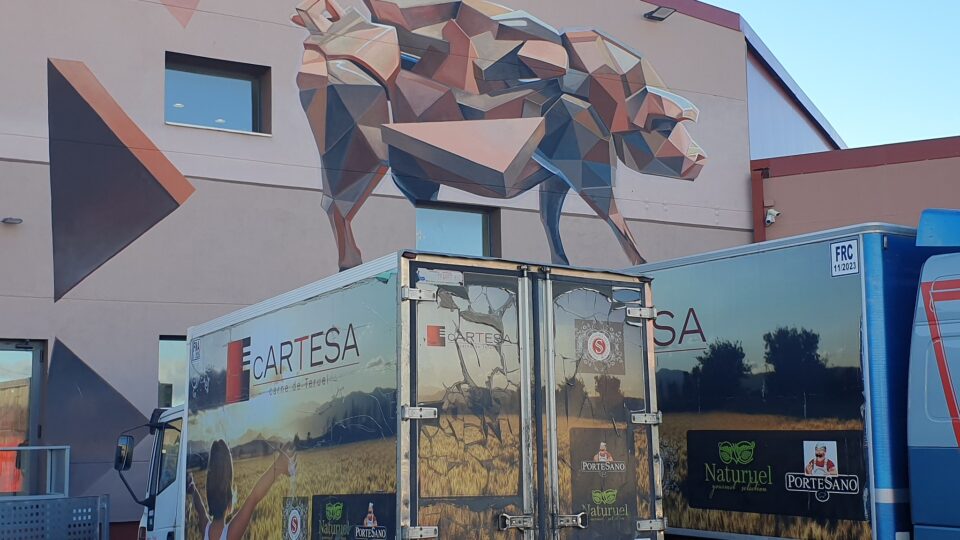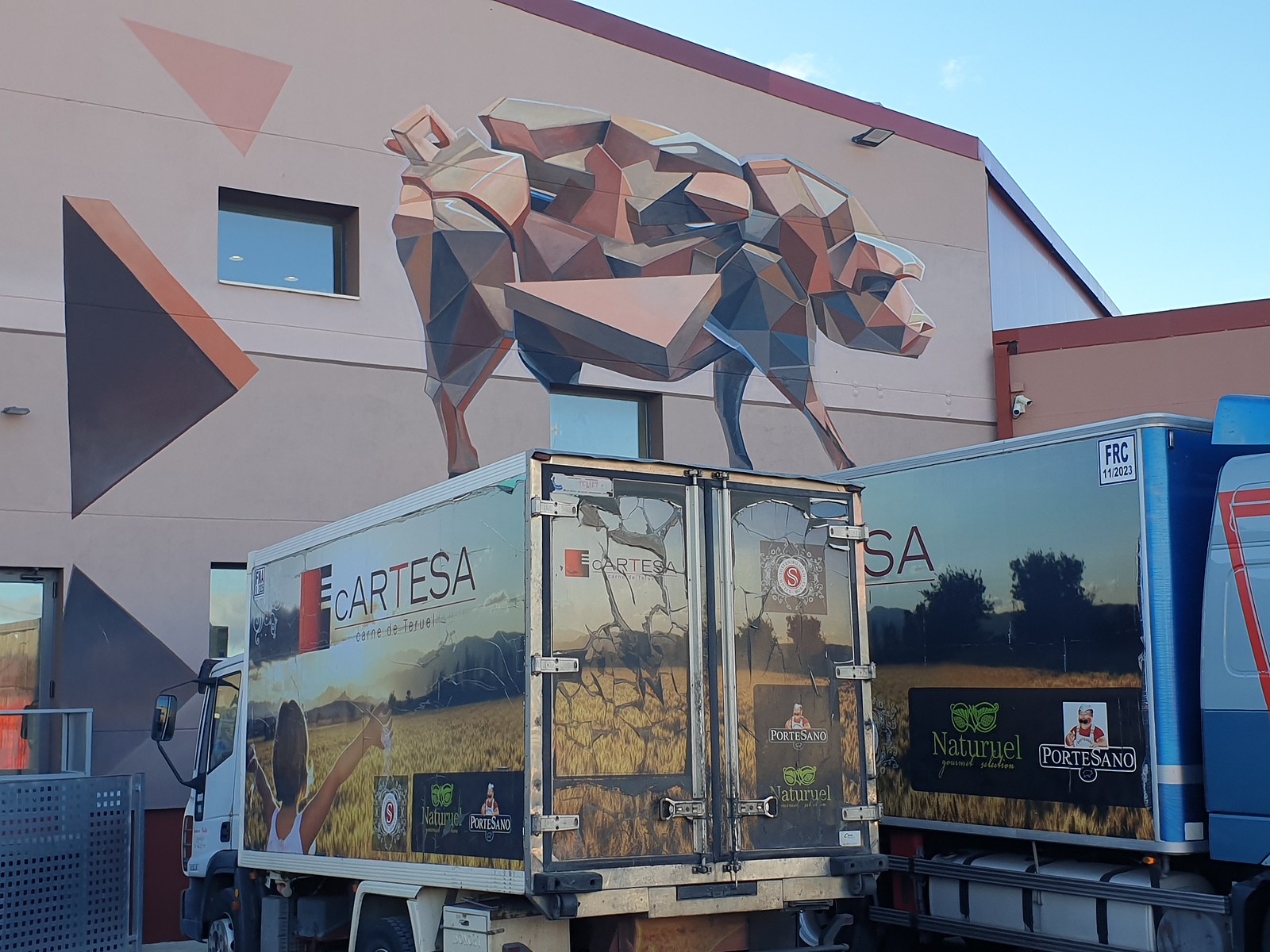
Case Study Field Visit
Pork Value Chain
9 November 2023 – Teruel, Spain
BBTWINS partners converged on the Spanish city of Teruel for a couple of days to advance with data collection, planning meetings and group visits to the pork value chain case study of this Horizon EU-funded project. Partners visited the CARTESA slaughterhouse, the PORTESA feedstock factory and the AIRE SANO pig-fattening farm in the countryside outside of Teruel; the three entities are part of the private holding company Naturuel Corporación Agroalimentaria.
Cartesa processes 900 pigs per day and has plans to triple its operations in 2025, while keeping its numbers relatively ‘small’ compared to largest industrial companies that are processing 10,000-to-15,000 pigs per day. The goal of this case study is to prove via research, data collection, and the development and application of technical innovations explored by the BBTWINS project that such processes can be done more efficiently, reducing carbon emissions and waste, thus overcoming challenges for the European transition of agri-food industries’ value chains becoming more sustainable overall.
At the CARTESA processing plant, for example, the end products of packaged meat include a thin cardboard back wrapping in plastic, thus bringing down the use of plastic wrapping by 75%. The QR codes on the back of the packaging will also have embedded blockchain technology that provides 100% traceability of the products, thus enhancing the transparency of the product’s entire journey from ‘farm-to-fork’, and thereby contributing to the overall sustainability of the operations.
Other technologies include the digital twin monitoring, calculations, and reporting that are being deployed by the PORTESA feedstock operations center. The ‘digital twins’ concept and technology allow for the identification of aspects of areas to improve in the processes with the goal of aiming to increase efficiency, decrease wastage and enhance environmental standards, such as the precise examination of the quantity and weight of each loading cell of the transport trucks.
On the road to Albarracin, to the west of Teruel, the AIRE SANO pig farm is a low rectangular building surrounded by hills with windmills turning slowly on the horizon. The pig farm is operated by PORTESA, and fellow BBTWINS partner PANOIMAGEN is busy taking AI-vision measurements of the livestock there, also with the goal of automating and optimizing its processes.
Cutting-edge technologies for agri-food
Artificial intelligence, logistics optimisation, blockchain, and digital twins are the technologies and solutions explored by BBTWINS to improve the efficiency of agri-food supply chains. The private holding company PORTESA makes for an ideal case study to explore these technologies as the holding company oversees most of its supply chain: from feedstock management and animal husbandry to meat processing and packaging. At the onset of the BBTWINS project the needs of PORTESA were analysed and matched with the possibilities new technology can offer. Now in the third year of the project, BBTWINS partners went to visit the case study and have a look at the technologies in situ.
At the pig-fattening farm, the use of artificial intelligence to interpret imagery, also called artificial vision, was showcased by PANOimagen. They have developed software that can identify a pig from imagery captured from a phone or tablet camera, and which subsequently estimates the weight of the pig with promising accuracy. Instead of having to weigh each pig individually by ushering them onto a scale, this technology lays the groundwork for farmers being able to instead snap a few pictures and have the weight of your livestock immediately right at hand.
PANOimagen also developed another artificial vision solution to measure the amount of fat on a given piece of pork meat. At the hand of an image or video, a trained neural network will return an estimation of the amount of fat which facilitates the acquiring of the ‘Protected Designation of Origin’ certificate to denote the quality of a given piece of pork meat.
For PORTESA’s internal transport of animal feed logistics models were recreated and simulated in a digital platform by NORLEAN and Soltec. By adjusting parameters such as feedstock input, output, frequency of trips and numbers of trucks in the simulation, the current logistics operation can be optimised to improve productivity and reduce the activity’s energy use and its carbon footprint.
To improve the traceability of the resources interchanged by the various facilities of the pork supply chain, StelvioTech developed a blockchain platform that keeps track of a product’s production cycle. Information about resources their origin are stored within a blockchain which can then be retrieved by scanning a QR code of the pork product’s packaging, supplying end-users with increased transparency.
Finally, a digital twin is being developed by NORLEAN and Soltec which recreates the supply chain into a single model and integrates many of the above-mentioned technologies into a single platform. This comprehensive simulation allows PORTESA to make changes in real-time and see their consequences, without interfering with the real actual operations. This digital twin has the potential to identify optimisations throughout the entire supply chain, improving productivity and sustainability across the board.
The digital transformation of the agri-food industry explored by BBTWINS in PORTESA is promising. In 2024, partners will be visiting the other case study, the peach producing cooperative DIMITRA in Greece, and see for themselves the impact of artificial intelligence, blockchain, logistic optimisations, and digital twins.


